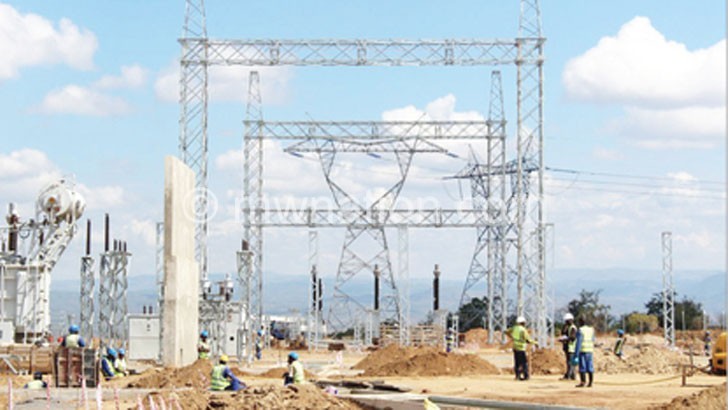Energy compact works 95% complete—MCA-M
With days before the $350.7 million (about K261 billion) United States of America Millennium Challenge Corporation (MCC) energy compact winds up on Thursday, the local implementing agency says it is now doing final touches as most of the works have been completed.
Under the five-year energy compact, Malawi has improved its archaic power infrastructure by, among others, improving transmission and distribution lines to enhance reliability, stability and quality.

built with MCC energy compact funds
As the project is winding up on September 20, Millennium Challenge Account-Malawi (MCA-M) communications and outreach director Zilani Khonje said in an interview that over 95 percent of the works have been completed.
She said as of July 31 this year, MCA-M had disbursed 74 percent of its 95 percent commitment towards the works.
Khonje said some of the major works completed include the upgrading and modernising of Nkula A Hydro Power Plant which is now transmitting power at 66 000 volts to Lilongwe and Blantyre.
The plant has maximised its power generation output to 36 megawatts (MW) from the initial 24MW, she said.
The Phombeya sub-station in Balaka has also been energised, increasing power transmission from 132 kilovolts (kV) to 400kV.
The upgraded infrastructure will now transmit power to the Central Region through a 173-kilometre 400 kV overhead transmission line from Phombeya sub-station to Nkhoma sub-station in Lilongwe.
With the improved power infrastructure, Malawi is now ready to interconnect with other countries such as Mozambique and Zambia and join the Southern African Power Pool (Sapp) to increase electricity output from the present 351MW.
Khonje said works at the Luwinga and Bwengu sub-stations in Mzimba in the Northern Region are also complete.
Although Malawi has now finally improved the network of its power supply and ready to increase its generation capacity, Khonje said all this infrastructural development will be meaningless if it does not attract independent power producers (IPPs).
“Malawi needs to critically look at its cost reflective tariff for more power generation because investors are also looking at that,” she said.
Last week, Electricity Supply Corporation of Malawi (Escom) power purchase agreements with two IPPs that would add 88MW to the national power grid by December 2019.
The two IPPs are Canada-based JCM Matswani Solar Limited which will add 80MW and Mulanje Hydro Limited to add 8MW. n





